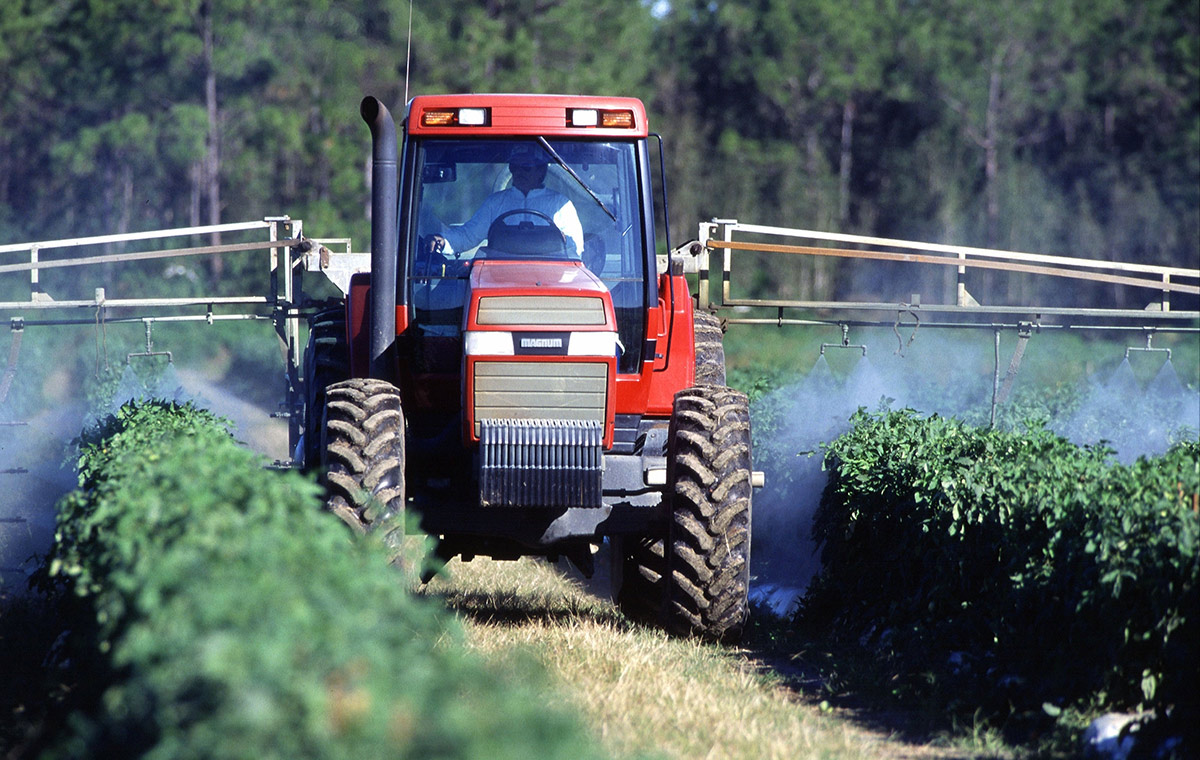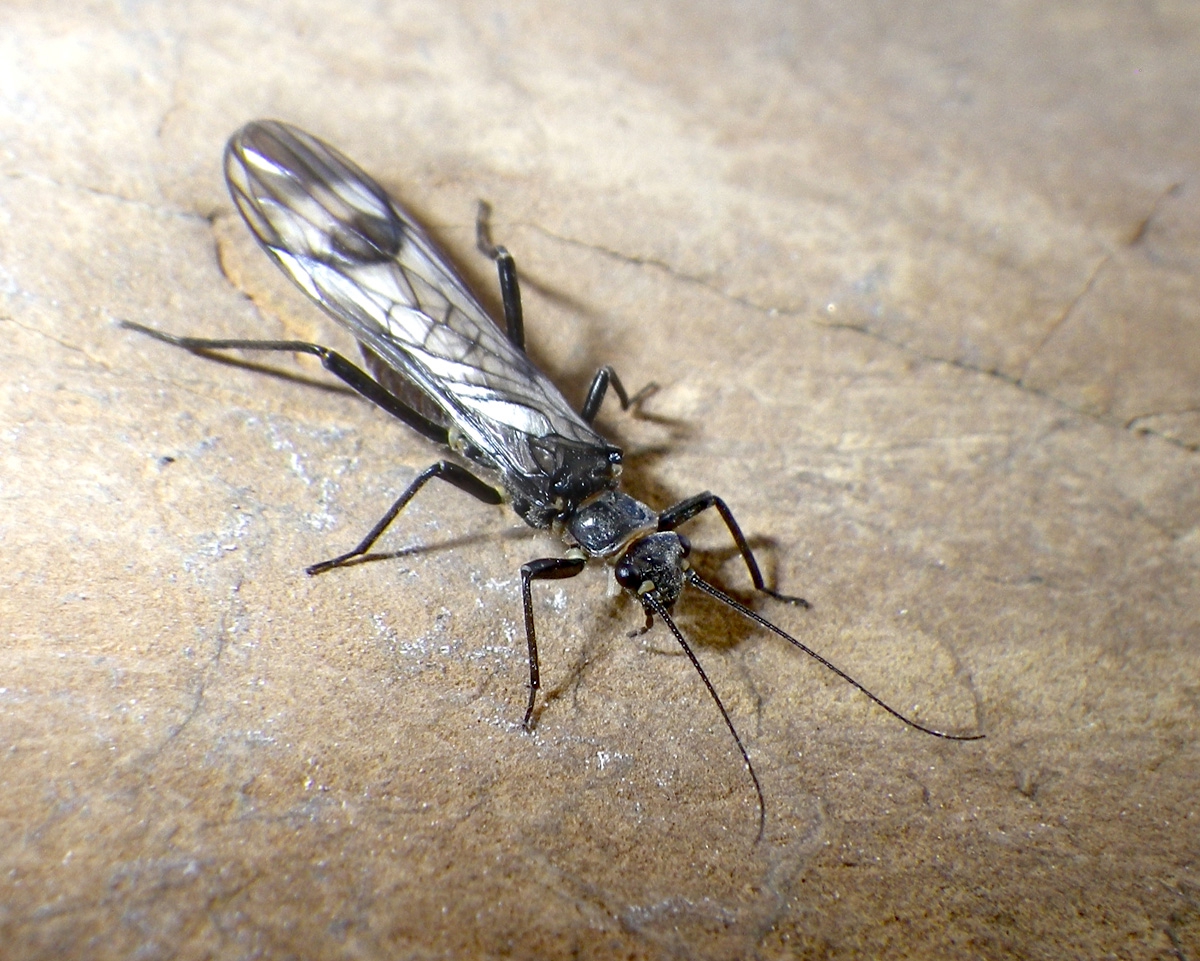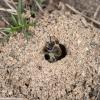I was recently asked, “Why doesn’t the Xerces Society partner with or take money from pesticide or oil companies?”
The answer is simple: At Xerces, we feel that a conservation organization should not accept money from companies whose products are harming the very animals that we are charged with protecting. Conversely, we do want to work with companies that share our focus on solutions to the biodiversity and climate crises.
We prioritize partners with shared goals
At its core, Xerces is a partnership organization. We have thousands of partners, including federal, state, and local agencies, farmers, nonprofits, companies, scientists, and volunteers. Our partnerships are all built on shared goals to ensure that they are working to advance invertebrate conservation. Pesticide and oil and gas companies are at odds with that. As a result, we do not accept money from or partner with either.
Pesticides and fossil fuels are causing the problem
The science is clear that pesticides and human-caused climate change are major drivers of insect decline and endangerment. Pesticides—properly known as “biocides”—are designed to kill, with insecticides specifically targeting insects. Unfortunately, most insecticides do not just harm their target species. They can harm all insects, including pollinators and aquatic insects, as well as countless other vital invertebrates. Similarly, climate change, driven partly through the use of fossil fuels, is changing the face of our planet, negatively impacting biodiversity and human communities through droughts, extreme weather, increased fire risk, changing patterns of disease spread, and more. A modeling study from a few years ago estimated that nearly half of insects could lose half of their ranges under the most severe warming scenarios.
Many groups that conserve pollinators and other insects sidestep the issue of pesticides, focusing instead on creating flowering landscapes. While pollinators do need this habitat to survive, it is not enough. These areas must also be safe for insects. If we are not thoughtful about insecticide use in the surrounding landscape, the animals we are working to protect can be poisoned in the very habitats where we are restoring flowers. Some will say that advances in developing new pesticides can help minimize impacts, but that’s not always the case. For example, neonicotinoids (often shortened to neonics) were touted as a way to minimize impacts on non-target organisms. In reality, neonics are highly toxic, long lived, and move with water, making them one of the worst types of insecticides on the market when it comes to managing non-target risk. Thus, we should not be surprised that their use has been linked with ecosystem disruptions by killing off foundational species such as pollinators and the myriad insects at the base of the food chain.

To solve our insect-decline crisis, we must make major strides to minimize the impact of pesticides in all landscapes, and maximize support for farmers and other land managers to adopt new strategies that still manage their pests and support their success.
Unfortunately, the business models of pesticide, oil and gas companies are built around selling these products: The more people buy, the better it is for their bottom line. There is no incentive to lower production or cut back on marketing, and the global market for pesticides is booming. More of these chemicals are used worldwide now than at any time in history. In the United States alone, the pesticide market was worth $63.7 billion in 2020 and is expected to reach nearly $97 billion by 2027. The business model of both oil and pesticide companies hurts all of the inhabitants on the planet.
We don’t want to provide a cover for greenwashing
Our view is that the Xerces Society should not provide a platform for greenwashing for these companies. They have been making record profits and talking up their green credentials while doing very little to fix the problems that they cause. The amount of money they give to conservation groups is insignificant compared to their profits. Although many companies highlight their contributions to habitat enhancement and preservation of biodiversity, the actual amount of money being donated is consistently less than .01% of the billions collected in sales.
Such philanthropy is used to make the public feel they are part of the solution, while at the same time using the playbook that the tobacco industry developed. They promote uncertainty about scientific studies, influence policies at the federal, state, and local level to keep their harmful products on the market, and buy credibility through funding universities and nonprofits to delay actions that would actually mitigate some of the damage that they have caused.
Similarly, fossil fuel companies try to play both sides. According to a 2022 report by InfluenceMap, five oil companies spend $750 million each year on “green messaging.” InfluenceMap noted that the companies continue to invest in unsustainable fossil fuel energy systems and lobby policymakers to lock fossil fuels into climate policy, all while undertaking systematic campaigns to portray themselves as pro-climate to the public.

Integrity is a core value of the Xerces Society
Beyond the ethics of taking money earned from harming invertebrates, Xerces feels that our credibility as a conservation leader would be at risk if we took money from these sources. How could you trust Xerces to speak truth to power if we were also taking money from the very companies that are causing the issues we are trying to fix?
We understand that there are instances when pesticides can help. Pesticides can help respond to harmful pests in food production and can be part of protecting ourselves and our animals from disease. Still, we should work to reduce and better target pesticides when their use cannot be avoided. There are many ways to stop or lower our pesticide use. We work with farmers to incorporate practices that deter pests and encourage natural pest management through increasing biodiversity on their farms. These actions are part of the verifiable integrated pest management approaches we promote.
We also understand that fossil fuels play a major role in how we go about our daily lives. We all need to travel and most homes are still heated with them, but we should move away from fossil fuels whenever possible to lessen or avoid their use and address the dire consequences of climate change. We are living in an age where we have the knowledge and technology to move away from pesticides and fossil fuels, and as a conservation organization this needs to be part of our message. Taking money from companies that are promoting harm cannot be part of our portfolio.
Working with partners is key. It is imperative that we collaborate as this task is too great for any one person or organization. But we believe the partners we work with should be ones that are moving our conservation agenda forward, not hindering it.



